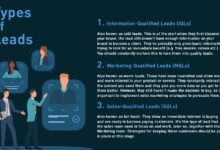Leads Meaning: 7 Powerful Insights You Must Know Now
Ever wondered what ‘leads meaning’ really is? It’s more than just potential customers—it’s the lifeblood of sales and marketing. Let’s break it down in simple, powerful terms.
Leads Meaning: The Core Definition and Why It Matters

Understanding the leads meaning is the first step toward building a successful sales and marketing strategy. At its core, a lead is any individual or organization that has shown interest in your product or service. This interest can come through various channels—filling out a form, subscribing to a newsletter, downloading a whitepaper, or even engaging with your content on social media.
What Exactly Is a Lead?
A lead is not yet a customer, but a prospect. The key distinction lies in intent. A lead has taken an action that signals they might be interested in what you offer. This action, often referred to as a ‘conversion,’ places them into your sales funnel. According to Investopedia, a lead is “a potential sales contact whose interest in a company’s product or service has been noted.”
- Leads are generated through marketing efforts like ads, content, or events.
- They are not guaranteed sales but represent opportunities.
- Leads can be individuals (B2C) or decision-makers in companies (B2B).
Why Leads Are the Foundation of Sales
Without leads, there is no pipeline. Sales teams rely on a steady flow of qualified leads to meet their targets. Marketing’s primary role, in many organizations, is lead generation. As HubSpot explains, “Leads are the starting point of every customer journey.” The quality and quantity of leads directly impact revenue growth.
“You can have the best product in the world, but if no one knows about it, you have nothing. Leads are how you bridge that gap.” — Sales Expert, Brian Tracy
Leads Meaning in Different Business Contexts
The interpretation of ‘leads meaning’ can vary significantly depending on the industry, business model, and target audience. What qualifies as a lead in one context might not in another. Let’s explore how different sectors define and use leads.
Leads in B2B (Business-to-Business)
In B2B environments, leads are often decision-makers or influencers within organizations. These could be CEOs, procurement managers, or IT directors. The sales cycle is typically longer, requiring multiple touchpoints. A B2B lead might download a case study or request a demo, signaling deeper interest.
- B2B leads are often scored based on job title, company size, and engagement level.
- Lead nurturing is critical due to longer decision-making processes.
- CRM systems like Salesforce are used to track B2B lead progression.
Leads in B2C (Business-to-Consumer)
In B2C, leads are usually individual consumers. The conversion path is shorter. A lead might sign up for a free trial, enter a contest, or follow a brand on social media. The focus here is on volume and speed. E-commerce platforms like Shopify use automated email sequences to convert B2C leads quickly.
- B2C leads respond well to discounts and urgency.
- Data collection is key—email, phone number, purchase history.
- Retargeting ads are commonly used to re-engage B2C leads.
Types of Leads: From Cold to Hot
Not all leads are created equal. Understanding the different types of leads is crucial for effective follow-up and conversion. The ‘leads meaning’ evolves as a prospect moves through the sales funnel.
Cold Leads: The Starting Point
Cold leads are individuals who have shown minimal interest. They might have visited your website or liked a social media post but haven’t taken any concrete action. These leads require significant nurturing before they’re ready to buy.
- Often obtained through broad marketing campaigns.
- Low conversion probability without engagement.
- Best approached with educational content, not sales pitches.
Warm Leads: Showing Interest
Warm leads have interacted with your brand in a meaningful way—subscribed to a newsletter, attended a webinar, or downloaded a guide. They’re aware of your brand and are considering options. This is where lead nurturing becomes essential.
- Higher engagement than cold leads.
- May respond to personalized emails or offers.
- Often tracked using marketing automation tools like Mailchimp or ActiveCampaign.
Hot Leads: Ready to Buy
Hot leads are actively looking to make a purchase. They’ve requested a quote, scheduled a demo, or added items to their cart. These leads should be prioritized by the sales team for immediate follow-up.
leads meaning – Leads meaning menjadi aspek penting yang dibahas di sini.
- High intent and urgency.
- Short sales cycle.
- Require fast response—delay can mean lost sales.
“A hot lead is like a customer standing at your door. If you don’t answer, they’ll go to your competitor.” — Marketing Strategist, Seth Godin
Leads Meaning in Digital Marketing: How They’re Generated
In the digital age, leads meaning is closely tied to online behavior. Most leads today come from digital channels. Understanding how to generate them effectively is a must for any modern business.
Website Forms and Landing Pages
Landing pages are one of the most effective tools for lead generation. By offering something valuable—a free eBook, consultation, or trial—in exchange for contact information, businesses can capture leads directly from their website.
- Clear call-to-action (CTA) buttons increase conversion rates.
- A/B testing helps optimize form length and design.
- Tools like Unbounce and Leadpages simplify landing page creation.
Social Media and Paid Ads
Platforms like Facebook, LinkedIn, and Instagram allow businesses to target specific demographics and collect lead data through ads. Facebook Lead Ads, for example, let users submit information without leaving the platform.
- Highly scalable and measurable.
- Allows precise targeting based on interests, job titles, or behaviors.
- Integration with CRM systems ensures seamless follow-up.
Email Marketing and Newsletters
Email remains one of the highest ROI marketing channels. By building a subscriber list, businesses can nurture leads over time with valuable content, promotions, and personalized recommendations.
- Drip campaigns automate lead nurturing.
- Segmentation improves open and click-through rates.
- Tools like ConvertKit and Klaviyo help manage large email lists.
Leads Meaning in Sales Funnel Stages
The sales funnel is a model that illustrates the customer journey from awareness to purchase. Leads meaning changes at each stage, reflecting their level of engagement and readiness to buy.
Awareness Stage: Generating Interest
At the top of the funnel, the goal is to attract attention. Leads here are often cold, unaware of your brand or solution. Content like blog posts, videos, and social media posts help educate and draw them in.
- Focus on SEO and organic reach.
- Use free resources to capture contact info.
- Metrics: Website traffic, impressions, shares.
Consideration Stage: Building Trust
In the middle of the funnel, leads are evaluating options. They know their problem and are researching solutions. This is where case studies, webinars, and comparison guides become valuable.
- Provide detailed information about your product.
- Highlight benefits over features.
- Engage via email sequences or retargeting ads.
Decision Stage: Closing the Deal
At the bottom of the funnel, leads are ready to decide. They may be comparing prices, reading reviews, or waiting for a discount. Sales teams step in with demos, quotes, and personalized offers.
- Fast response time is critical.
- Offer limited-time incentives.
- Use testimonials and guarantees to reduce risk.
Leads Meaning and Lead Scoring: Prioritizing Prospects
Not all leads deserve the same level of attention. Lead scoring is a methodology used to rank prospects based on their perceived value. It helps sales and marketing teams focus on the most promising opportunities.
What Is Lead Scoring?
Lead scoring assigns numerical values to leads based on demographic and behavioral data. For example, a lead who visits your pricing page might get +10 points, while one who downloads a brochure gets +5. High scores indicate higher readiness to buy.
- Demographic factors: job title, company size, location.
- Behavioral factors: page visits, email opens, form submissions.
- Thresholds determine when a lead is sales-ready.
Benefits of Lead Scoring
Implementing lead scoring improves efficiency and conversion rates. It ensures that sales teams spend time on leads most likely to convert, reducing wasted effort.
leads meaning – Leads meaning menjadi aspek penting yang dibahas di sini.
- Increases sales productivity.
- Improves alignment between marketing and sales.
- Enhances customer experience through timely, relevant communication.
Leads Meaning in CRM and Automation Tools
Customer Relationship Management (CRM) systems are essential for managing leads effectively. They store lead data, track interactions, and automate follow-ups, ensuring no opportunity is missed.
How CRM Systems Handle Leads
CRMs like Salesforce, HubSpot, and Zoho CRM allow businesses to centralize lead information. Each lead is assigned a status—new, contacted, qualified, closed—and moved through stages as they engage.
- Automated workflows trigger emails or tasks.
- Analytics provide insights into lead sources and conversion rates.
- Integration with email, phone, and social media tools streamlines communication.
Marketing Automation and Lead Nurturing
Automation tools help nurture leads over time without manual effort. For example, if a lead downloads a guide, an automated sequence can send follow-up emails with related content, gradually building trust.
- Drip campaigns keep your brand top-of-mind.
- Behavioral triggers send timely messages.
- Personalization increases engagement and conversions.
Common Mistakes in Managing Leads Meaning
Even with the best tools, businesses often make mistakes in handling leads. Understanding these pitfalls can help you avoid them and improve your conversion rates.
Ignoring Lead Follow-Up
One of the biggest mistakes is failing to follow up promptly. Research by Marketing Donut shows that 78% of leads go to the company that responds first. Delayed follow-up drastically reduces conversion chances.
- Set up automated email responses.
- Use SMS or chatbots for instant engagement.
- Train sales teams on urgency.
Poor Lead Qualification
Not every lead is worth pursuing. Spending time on unqualified leads wastes resources. Without proper qualification, sales teams chase prospects who aren’t ready or able to buy.
- Use BANT (Budget, Authority, Need, Timeline) framework.
- Implement lead scoring to filter out low-potential leads.
- Align marketing and sales on what defines a ‘qualified lead.’
Overlooking Lead Nurturing
Many businesses focus only on acquisition, not nurturing. But most leads aren’t ready to buy immediately. Without nurturing, they go cold and are lost forever.
- Create a content calendar for lead engagement.
- Use segmentation to send relevant messages.
- Measure nurturing campaign success with conversion metrics.
Future Trends in Leads Meaning and Generation
The concept of leads meaning is evolving with technology. AI, data analytics, and privacy regulations are reshaping how leads are identified, captured, and managed.
AI and Predictive Lead Scoring
Artificial intelligence is revolutionizing lead scoring. Instead of manual rules, AI analyzes vast datasets to predict which leads are most likely to convert. Platforms like Salesforce Einstein and HubSpot AI offer predictive insights.
- AI identifies patterns humans might miss.
- Real-time scoring improves decision-making.
- Reduces bias in lead evaluation.
Privacy Regulations and Consent-Based Marketing
With GDPR, CCPA, and other privacy laws, businesses must obtain explicit consent before collecting lead data. This has shifted lead generation toward transparency and value exchange.
- Clear opt-in forms are now mandatory.
- Consumers expect control over their data.
- Trust-building is more important than ever.
Personalization at Scale
Modern consumers expect personalized experiences. Thanks to data analytics and automation, businesses can now tailor messages to individual leads based on their behavior, preferences, and history.
leads meaning – Leads meaning menjadi aspek penting yang dibahas di sini.
- Dynamic content changes based on user data.
- Recommendation engines suggest relevant products.
- Personalization increases conversion rates by up to 20% (source: McKinsey).
What is the basic leads meaning in sales?
A lead in sales refers to any person or organization that has shown interest in your product or service. This interest is usually demonstrated through actions like filling out a form, subscribing to a newsletter, or requesting more information. The leads meaning centers around identifying potential customers early in the buying journey.
How is a lead different from a customer?
A lead is a prospect who has not yet made a purchase, while a customer has completed a transaction. Leads are part of the sales pipeline; customers are the end result of converting those leads.
What are the best ways to generate leads?
Effective lead generation strategies include creating valuable content (blogs, eBooks), using landing pages with strong CTAs, running targeted ads on social media, hosting webinars, and leveraging email marketing. The key is offering something of value in exchange for contact information.
What is lead scoring and why is it important?
Lead scoring is a system that ranks leads based on their likelihood to convert. It uses demographic and behavioral data to assign scores. This helps sales teams prioritize high-potential leads, improving efficiency and conversion rates.
Can AI replace human lead management?
AI enhances lead management but cannot fully replace human interaction. While AI can analyze data, score leads, and automate follow-ups, complex sales often require empathy, negotiation, and relationship-building—skills only humans possess.
Understanding the leads meaning is fundamental to any successful marketing and sales strategy. From defining what a lead is to exploring how they move through the funnel, this guide has covered the essentials. Whether you’re in B2B or B2C, using CRM tools or AI, the goal remains the same: turn interest into action. By avoiding common mistakes and embracing modern trends, businesses can generate, nurture, and convert leads more effectively than ever before.
leads meaning – Leads meaning menjadi aspek penting yang dibahas di sini.
Further Reading:


